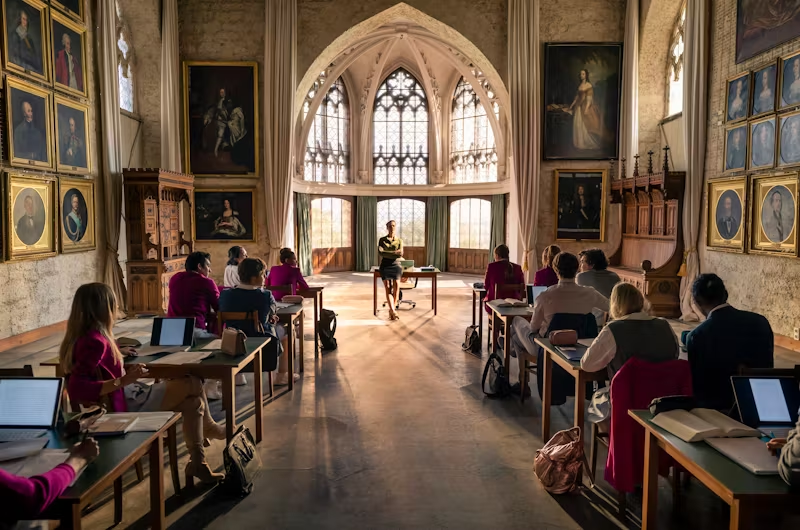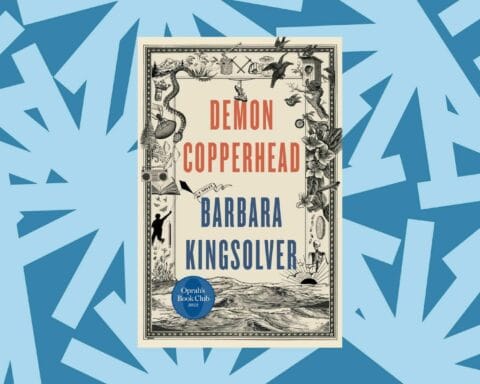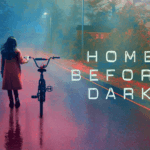‘Maxton Hall,’ a captivating TV show that intertwines opulence, moral dilemmas, and intricate relationships, offers a compelling narrative centered around an elite boarding school. The premise of the series revolves around the lives of affluent students who navigate their teenage years amidst a backdrop of luxury and privilege. Nestled in an idyllic setting, Maxton Hall represents not just an institution of learning but a microcosm of the high society. The architectural grandeur of the school complements the lavish lifestyles of its students, where private jets, designer wardrobes, and opulent parties are commonplace.
The main characters, each bringing their unique personas and backgrounds, vividly portray the complexities of life within the walls of Maxton Hall. The protagonist, often a fish out of water, offers viewers a lens through which the dichotomy between outward appearances and hidden truths is explored. The elite status of these youngsters extends beyond material wealth, imparting societal pressures that pervade their day-to-day activities. Their interactions are often tinged with the weight of family legacies, expectations, and the searing pursuit of excellence.
Yet, beneath the sheen of expensive lifestyles lies a realm fraught with challenges. Maxton Hall delves into the personal struggles and moral quandaries its characters face, exposing the cracks in the facade of perfection. As the storyline progresses, the audience witnesses the stark contrasts between the public personas these young people project and their private realities. Friendship, loyalty, betrayal, and forbidden romances propel the narrative, making Maxton Hall not merely a display of extravagance but a nuanced exploration of the human experience. The show adeptly captures the essence of the elite lifestyle—its allure, its pressures, and the inevitable sacrifices it demands.
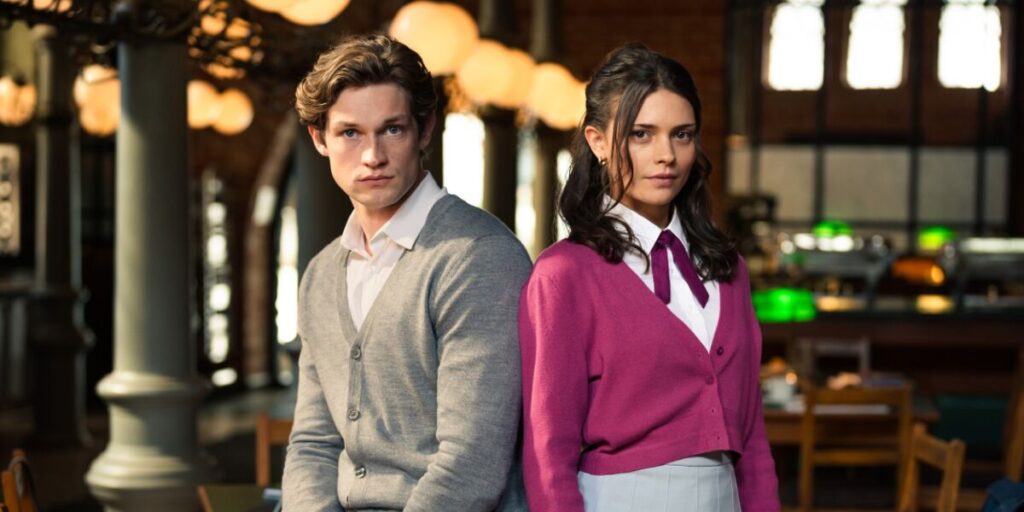



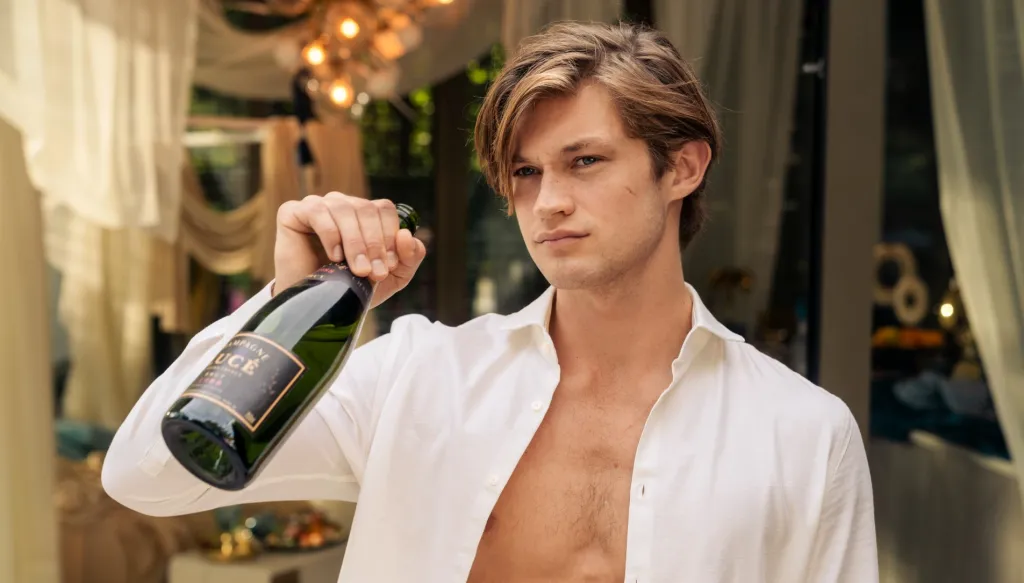
Exploring Moral Values in a World of Privilege
The TV show “Maxton Hall” intricately portrays the moral complexities and ethical dilemmas faced by individuals entrenched in an elite lifestyle. Often, the choices made by the characters are reflective of their high societal status, leading to a unique set of moral quandaries. Whether it’s grappling with issues of loyalty, honesty, or justice, the characters often navigate a gray area where the lines between right and wrong are blurred by privilege and power.
The show’s protagonists are frequently placed in situations where their moral values are tested. For instance, one might witness a character choosing to protect a friend’s secret at the cost of their own integrity or another leveraging their wealth to manipulate outcomes in their favor. These scenarios illustrate the often contradictory nature of morality in a world where societal expectations heavily influence behavior. Such dilemmas are not only dramatic but also serve to highlight the internal struggles and transformations the characters undergo.
In comparison to less privileged lifestyles, the ethical decisions faced by the Maxton Hall inhabitants come with higher stakes and more profound consequences. A person outside this elite circle might deal with issues on a smaller scale, where moral choices are driven by necessity rather than excess. The show effectively juxtaposes these two worlds, providing a stark contrast between the moral decisions of the affluent and those with fewer resources, emphasizing the complexity introduced by wealth and status.
Key character arcs in “Maxton Hall” often revolve around these moral explorations. For example, a seemingly unscrupulous character might experience a significant transformation upon facing the repercussions of their actions, leading to a redemption arc that underscores the potential for moral growth, even within an indulgent lifestyle. Conversely, some characters steadfastly cling to their flawed values, adding layers to the narrative and demonstrating the varied impacts of privilege on moral development.
Overall, “Maxton Hall” offers a compelling exploration of how privilege can shape, distort, and sometimes redeem one’s moral compass, providing an engaging commentary on the ethical landscape of high society.
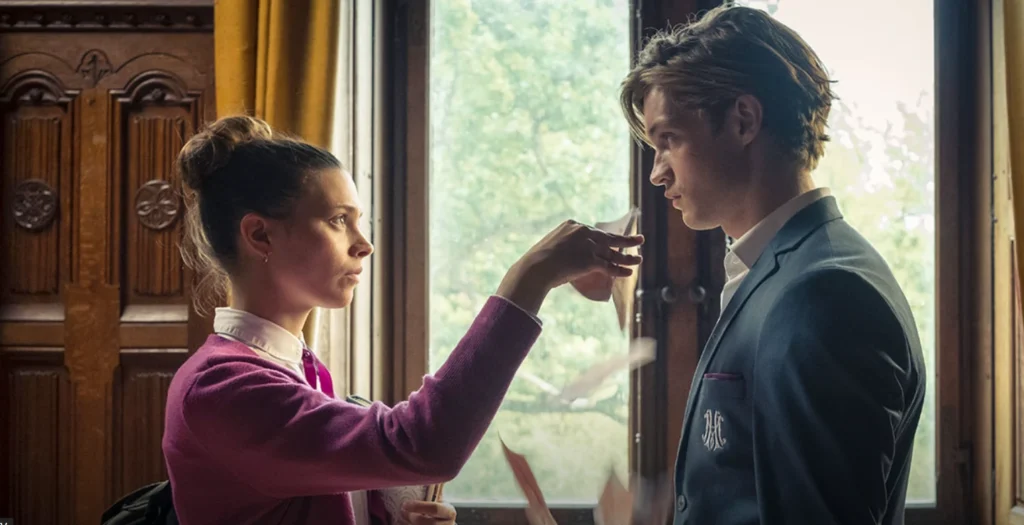
The Complex Web of Love and Relationships
In the world of Maxton Hall, relationships are not merely romantic; they are intricately woven and fraught with challenges, reflecting the complex interplay of emotions, social expectations, and personal ambitions. The TV show delves deeply into the romantic entanglements of its characters, portraying love not only as a source of comfort but also as a catalyst for conflict and drama. The elite setting of Maxton Hall serves as a backdrop that magnifies the emotional stakes, making every interaction more intense and consequential.
One can’t discuss Maxton Hall without mentioning the central relationships that drive much of the narrative. These relationships are characterized by a mix of passion and tension, trust and betrayal. The characters often find themselves navigating an emotional minefield, where a single misstep can lead to significant repercussions. These romantic entanglements are not just personal but have broader implications for their social standing and future ambitions.
The show skillfully portrays how trust is both a crucial and fragile component in these relationships. Trust is often established through grand gestures and moments of vulnerability but can be shattered in an instant, leading to a cascade of emotional conflict. Betrayal, whether intentional or accidental, is a recurring theme that serves to both drive the plot and deepen character development. For instance, when a character fails to uphold a promise or engages in deceit, the resulting fallout resonates throughout the storyline, affecting not only the individuals involved but their larger social circles as well.
Maxton Hall does not shy away from critically examining the darker aspects of love. Emotional conflict is portrayed with a raw honesty that underscores the complexity of these relationships. Characters often grapple with internal and external pressures, making decisions that can either forge stronger bonds or lead to irrevocable rifts. The series offers a nuanced portrayal of love, balancing its romanticized aspects with its more problematic dimensions, thereby providing a comprehensive view that resonates with viewers.


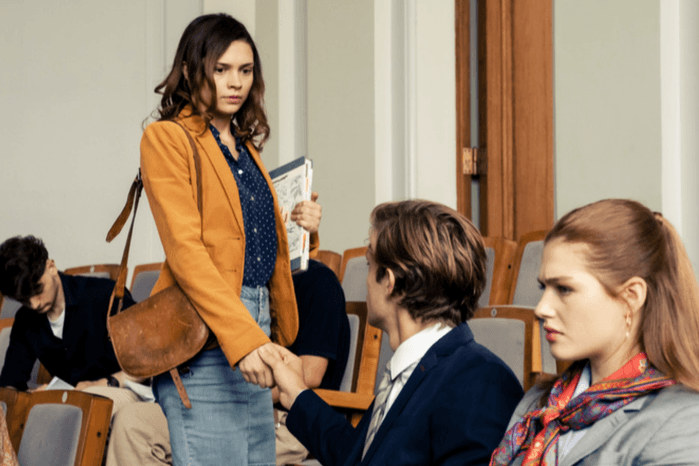
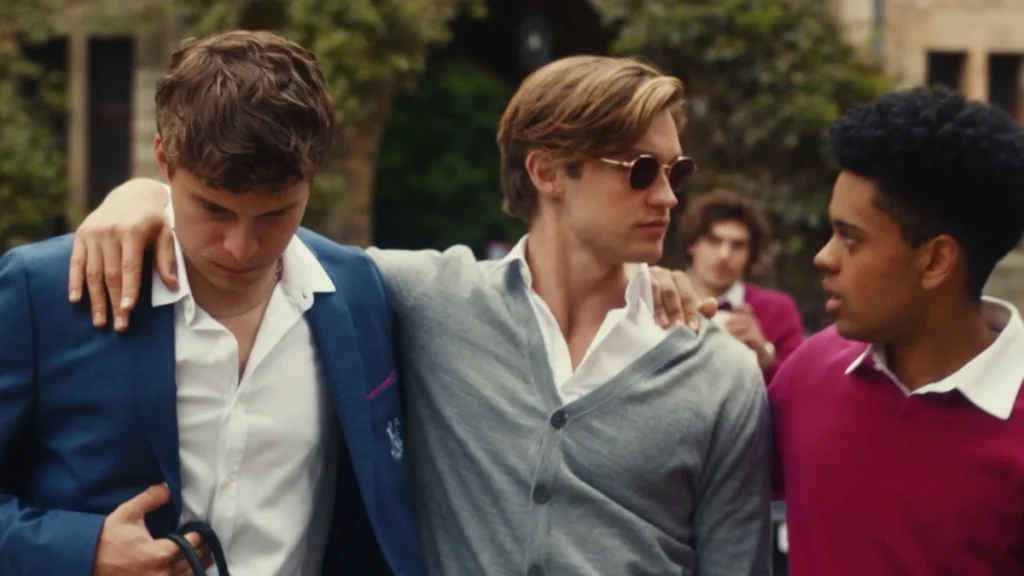

Comparing Maxton Hall to the Book Series
The TV show “Maxton Hall” and the books upon which it is based offer distinct yet interconnected experiences for audiences. One of the core similarities is their intricate focus on elite lifestyles, moral complexities, and romantic entanglements, which remain central themes across both mediums. However, key differences emerge in how these elements are depicted.
In terms of plot, the book series delves more deeply into internal monologues and the intricate emotions of its characters, providing readers with a nuanced understanding of their motivations and struggles. The TV adaptation, however, often condenses these psychological explorations into visual and dialogue-driven interpretations. This, while effective, can sometimes gloss over subtler plot points that are rich in the books.
Character development showcases another area of divergence. In the books, characters grow in a slow-burn fashion, allowing readers to witness their evolution over time. The TV show “Maxton Hall” often accelerates this process, sometimes combining or omitting characters to streamline the narrative for episodic constraints. While this adaptation strategy adds excitement and maintains pacing, it occasionally results in a loss of depth that fans of the books may notice.
Theme-wise, both mediums maintain a strong emphasis on moral values and romantic pursuits, but the books allow for more introspection and philosophical dialogue, compelling readers to ponder alongside the characters. The TV series, constrained by screen time, uses impactful scenes to convey these themes swiftly, which can enhance dramatic tension but reduce the opportunity for nuanced reflection.
The reception from fans has been mixed but generally positive. Many appreciate the TV show for bringing the vivid world of Maxton Hall to life, praising its visual style and casting choices. However, some express reservations about the changes made for the screen, feeling that they sometimes detract from the profound experiences described in the books.
The unique advantages and limitations of each medium are apparent. The books offer a more introspective journey into the Maxton Hall narrative, suited to those seeking in-depth understanding, while the TV show provides a visually engaging and emotionally immediate experience, ideal for viewers looking for quick immersion.
